
Water & Education
in the Pacific
Home
Current Appeals
Water and Education in the Pacific
The Pacific Islands are our neighbours and it’s up to us to support them in making sure tamariki have the essentials for a happy and healthy childhood – like clean water and quality education.
In Vanuatu, Kiribati and the Solomon Islands, kids are getting sick because they don’t have clean water, toilets or handwashing facilities at their school. And in Timor-Leste, Papua New Guinea and Kiribati, children’s education is suffering because they’re missing out on quality preschooling.
We’re bringing clean water and pre-school education to kids in the Pacific – and we want your help.
Our relationships with Governments, staff, communities and kids themselves drive the work that we do – from simple, sustainable projects to big-picture, national-level policy changes.
Thanks to people like you, we’ve been able to innovate and create long-lasting change for Pacific tamariki!
Tax back
Our work for kids in these countries has the financial backing of the New Zealand Government, so every $1 you donate increases to $5 of essential support for our Pacific neighbours!
Because the end of the tax year is approaching, if you donate before 31st of March, you can claim back 33% of your donation via your tax rebate.
What's the situation?
The Pacific Islands face unique challenges because of their remote location and vulnerability to climate disasters. Major storms damage water systems and schools, leaving tamariki without access to basics like clean water and education.
Vanuatu
- Only 19% of school water supplies are in good condition
- Only 22% of schools have handwashing facilities
Timor-Leste
- Only 31% of children are enrolled in preschool
- 19% of kids repeat grade 1 because of a lack of quality preschooling
Solomon Islands
- Nearly 66% of schools don’t have access to clean water or hygiene facilities
- A lot of young girls don’t have access to menstrual hygiene supplies
Kiribati
- Kids struggle with a lack of access to quality preschool education
- Only 3% of schools reported having safe drinking water
Papua New Guinea
- Only 35% of kids complete primary education
- 85% of the population live in rural areas with limited access to services
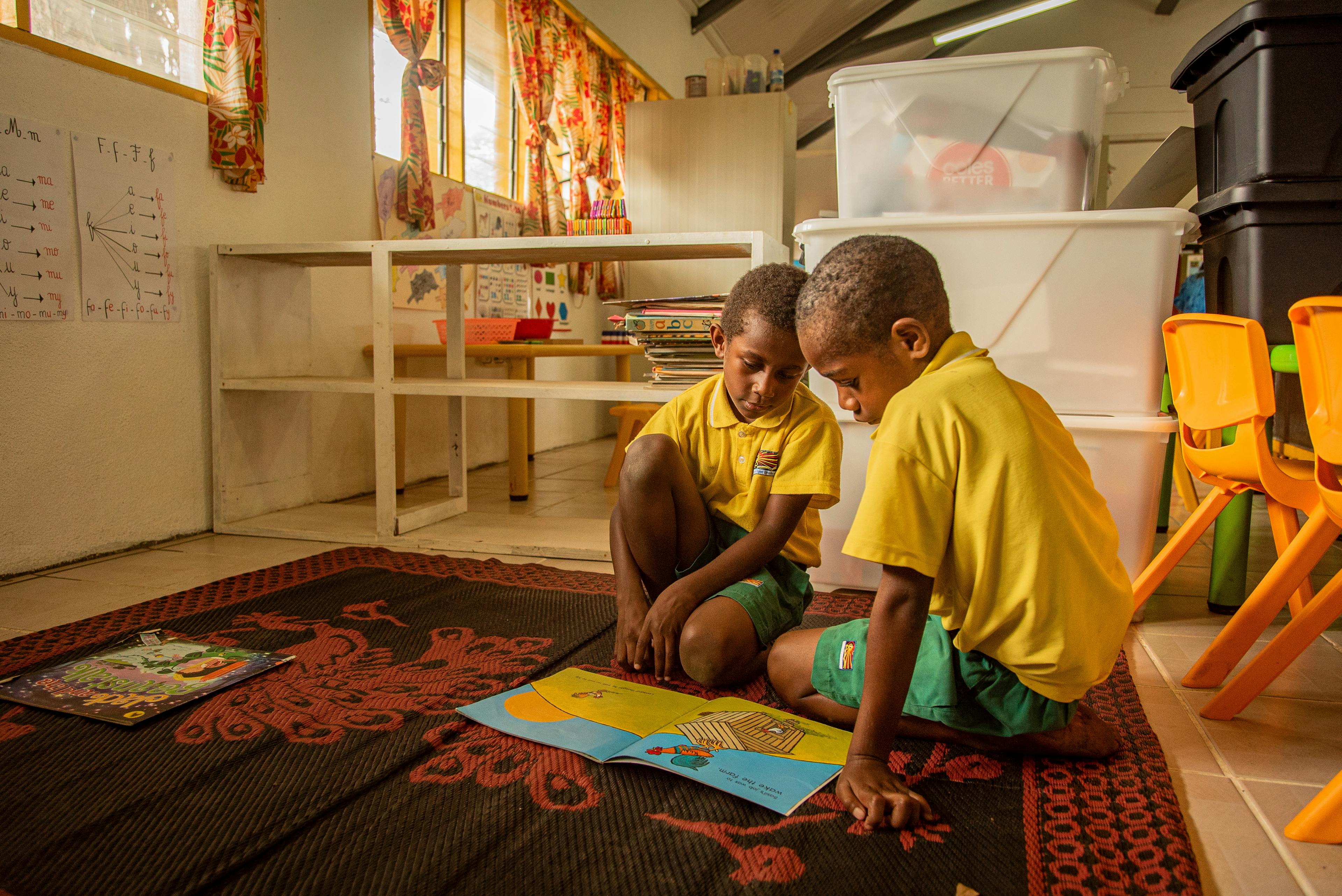
What have donors helped
us achieve in the Pacific?
Because of generous donors like you, we’re helping these hard-to-reach communities overcome obstacles that get in the way of kid’s access to clean water and quality education - so all tamariki can access their basic rights!
- In Timor-Leste, we’re training 169 teachers and developing inspiring new curriculums in 104 community-based preschools, benefitting almost 3,000 kids!
- We’re installing systems to provide safe water and separate bathrooms for boys and girls in 483 primary schools and 113 preschools across Vanuatu.
- In Papua New Guinea, we’re training teachers in a culturally relevant curriculum that’ll benefit 272 kids. We’re also constructing water and hygiene facilities in 5 schools and 5 healthcare centres.
- We’re building facilities for clean water and toilets in 150 schools and 38 healthcare centres in Kiribati. We’re also training 181 teachers across 229 schools that’ll motivate 7,000 kids to get stuck into learning!
- New toilets and clean water systems are being installed in 86 early childhood, primary and secondary schools across the Solomon Islands.
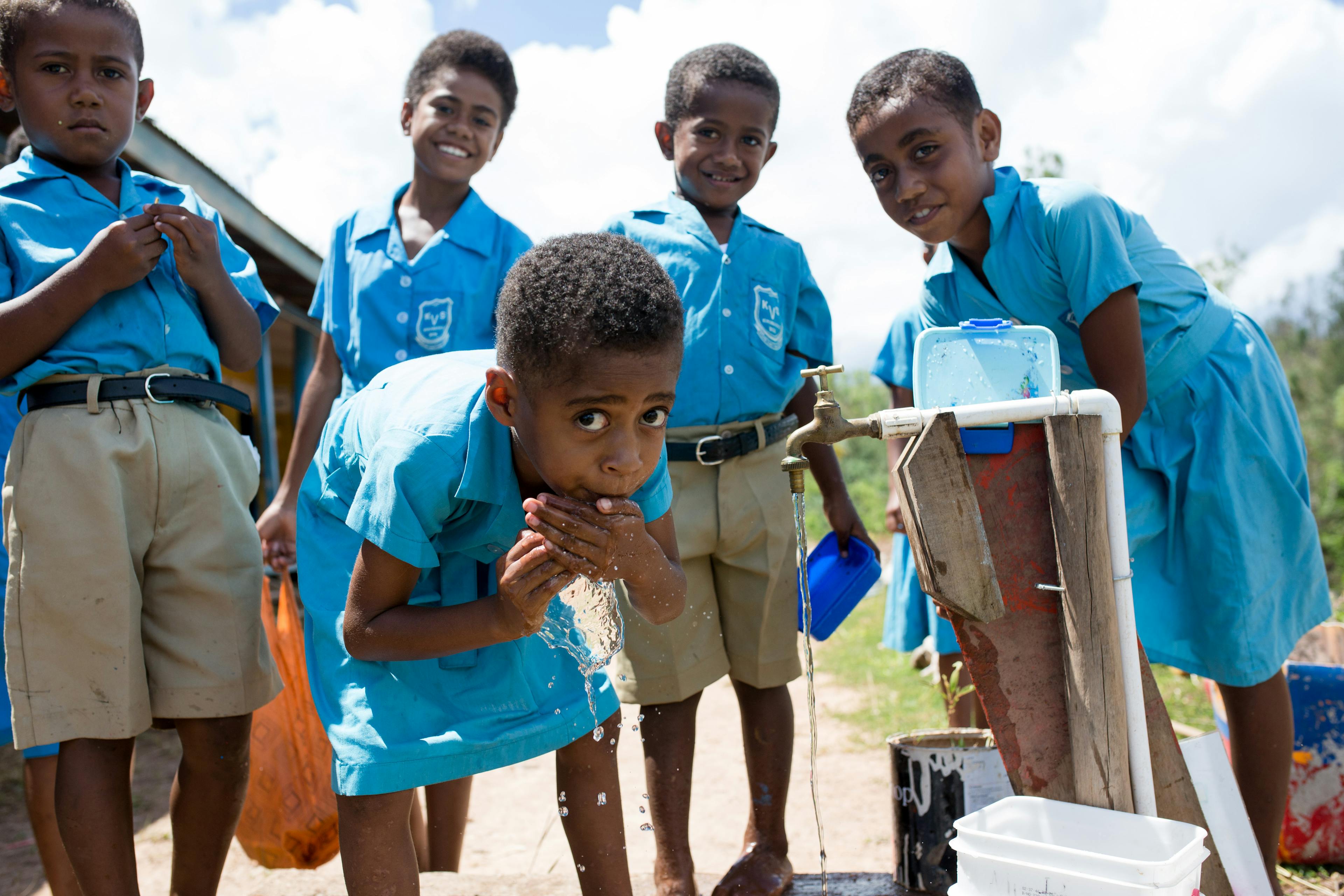
How will my donation
make a difference for kids?
It doesn’t get any more life-changing than bringing clean water, hygiene, sanitation and early education to children who currently have none, or very little.
This is an awesome opportunity to invest in kids’ futures - transforming their lives now and forever!
To learn more about the amazing projects and the tamariki you’ll be supporting, head over to Our Work in the Pacific page.
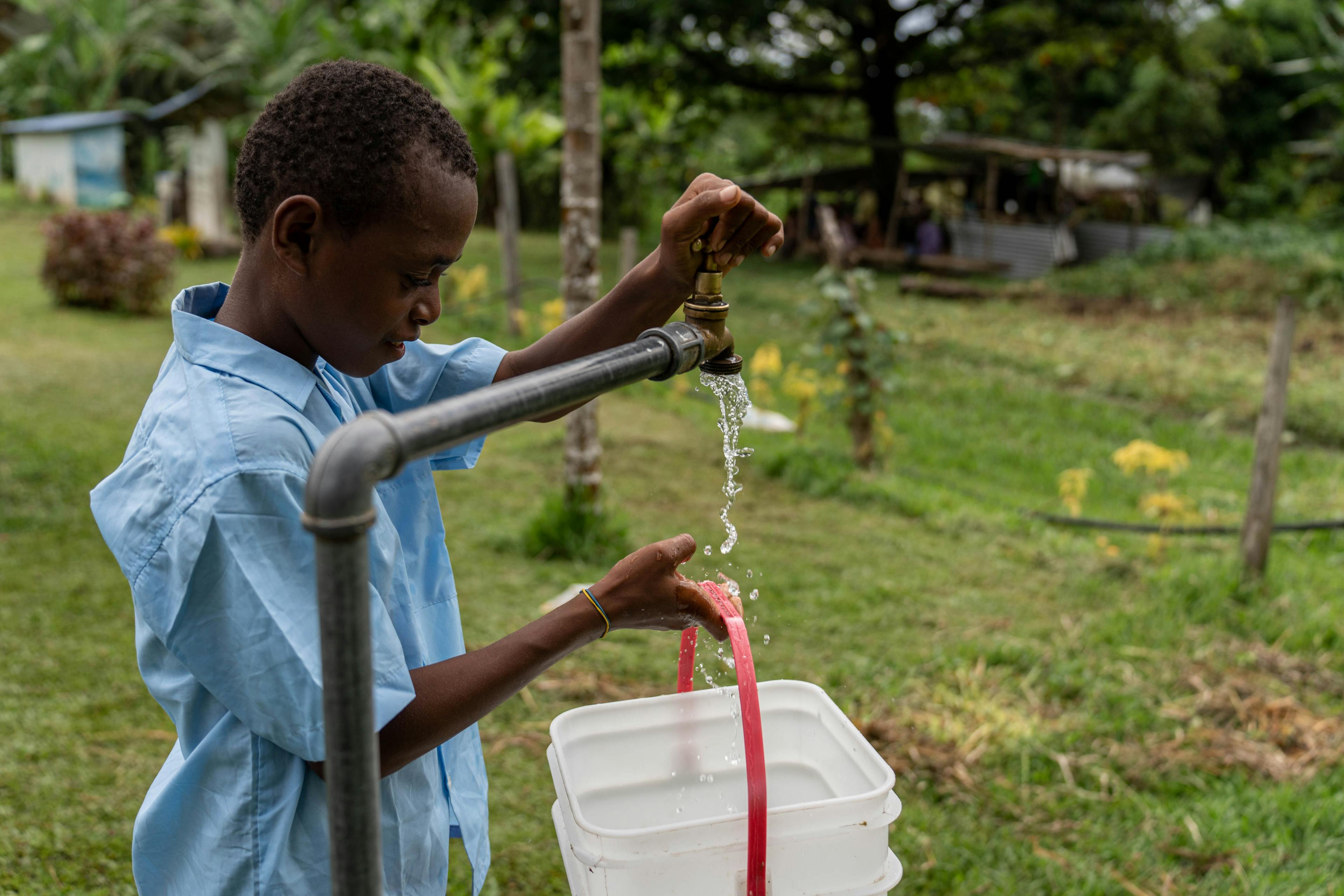
Other ways you can donate
Please donate today, to make an impact for tamariki in the Pacific.
Call our friendly team to donate over the phone on 0800 243 575.
You can donate direct to our bank account 01-0505-0463764-00 using code pacific-ws
Other ways to support
kids in the Pacific
Help us spread awareness for kids in the Pacific by sharing this appeal with your friends and family.
If you'd like to fundraise with your community to support our work, you can start a fundraiser here.
Donate to this appeal
SSL protected donation
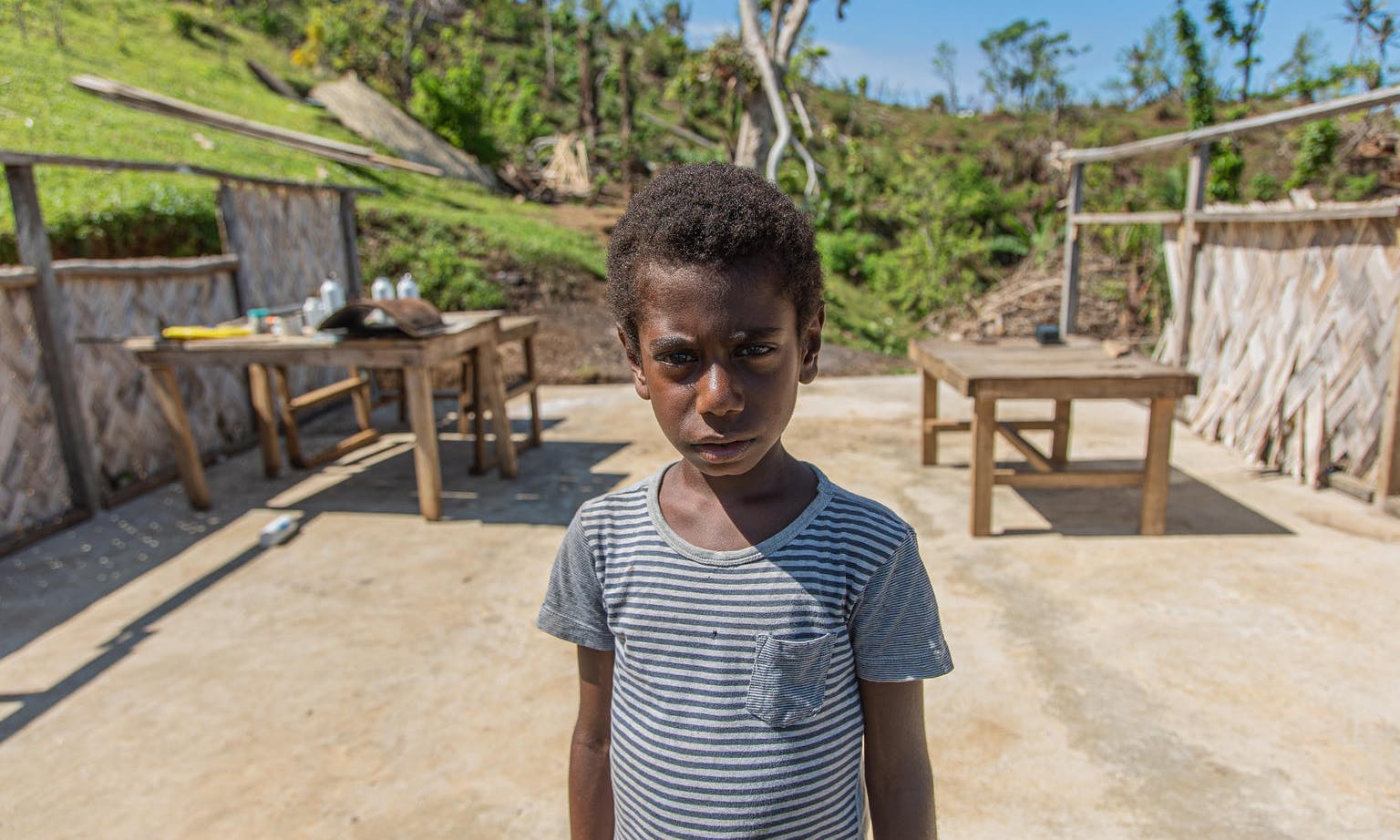
Weather-related disasters led to 43.1 million displacements of children over six years
Children in the Pacific islands of Vanuatu and Fiji featured highly on a per capita basis, with both countries in the top ten for proportion of children displaced by weather related events.
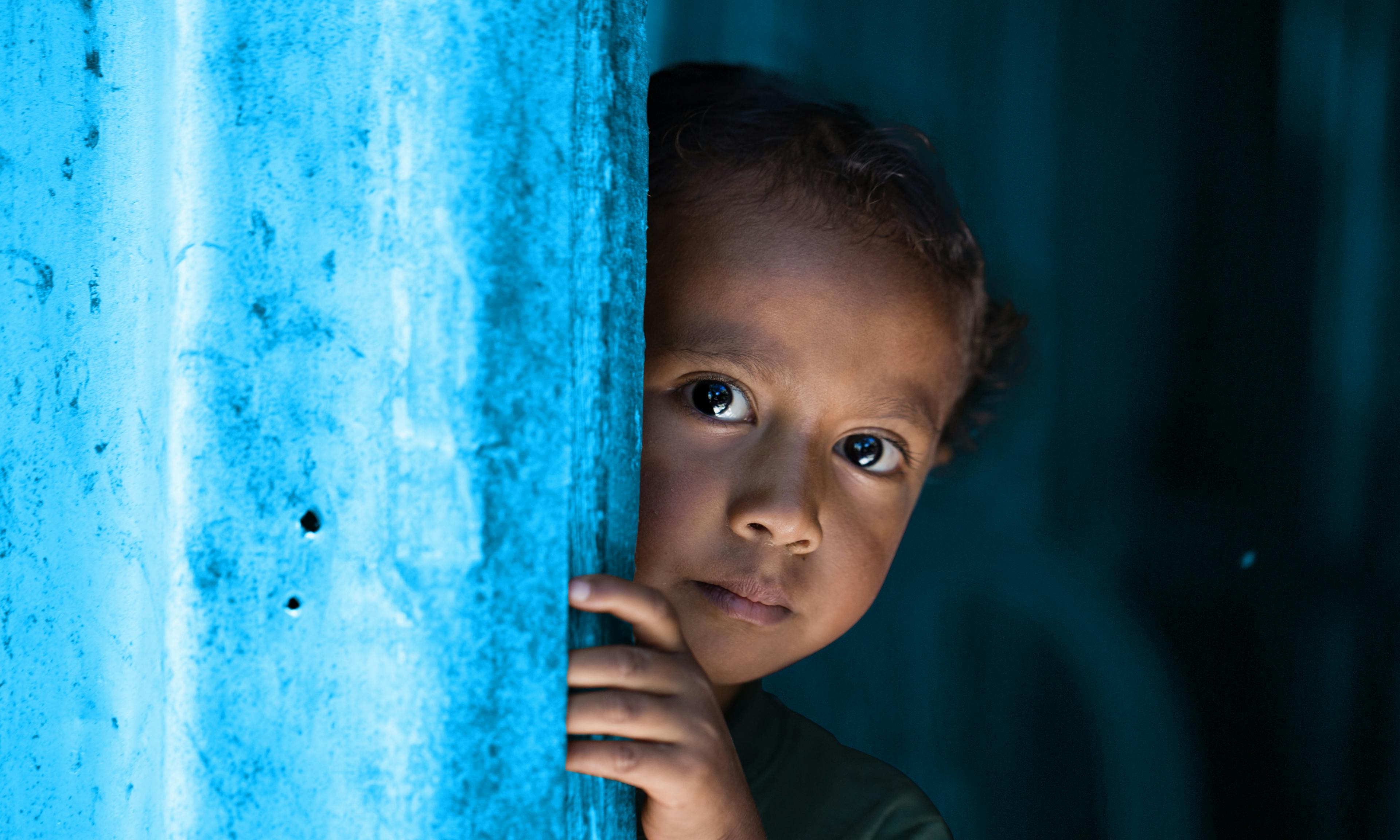
New report reveals harrowing scale of child protection crisis in the Pacific
A sobering new report details for the first time the shocking levels of physical, emotional and sexual violence, as well as neglect, faced by children living in the Pacific and Timor-Leste.
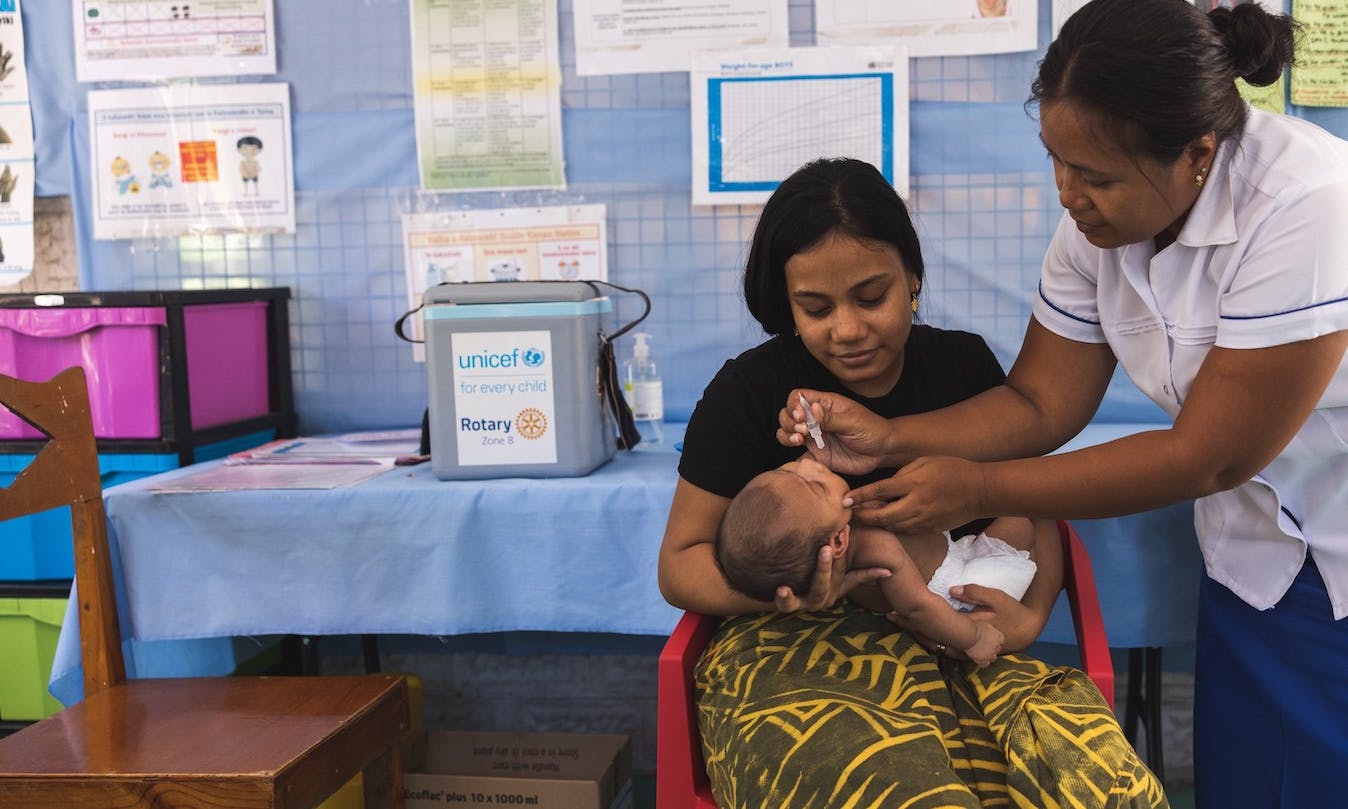
UNICEF and Rotary: protecting 100,000 Pacific Island children from life-threatening illnesses.
A Rotary and UNICEF immunisation program will protect up to 100,000 children in nine Pacific countries from potentially deadly illnesses including Rotavirus, Pneumococcal disease and Human Papillomavirus.
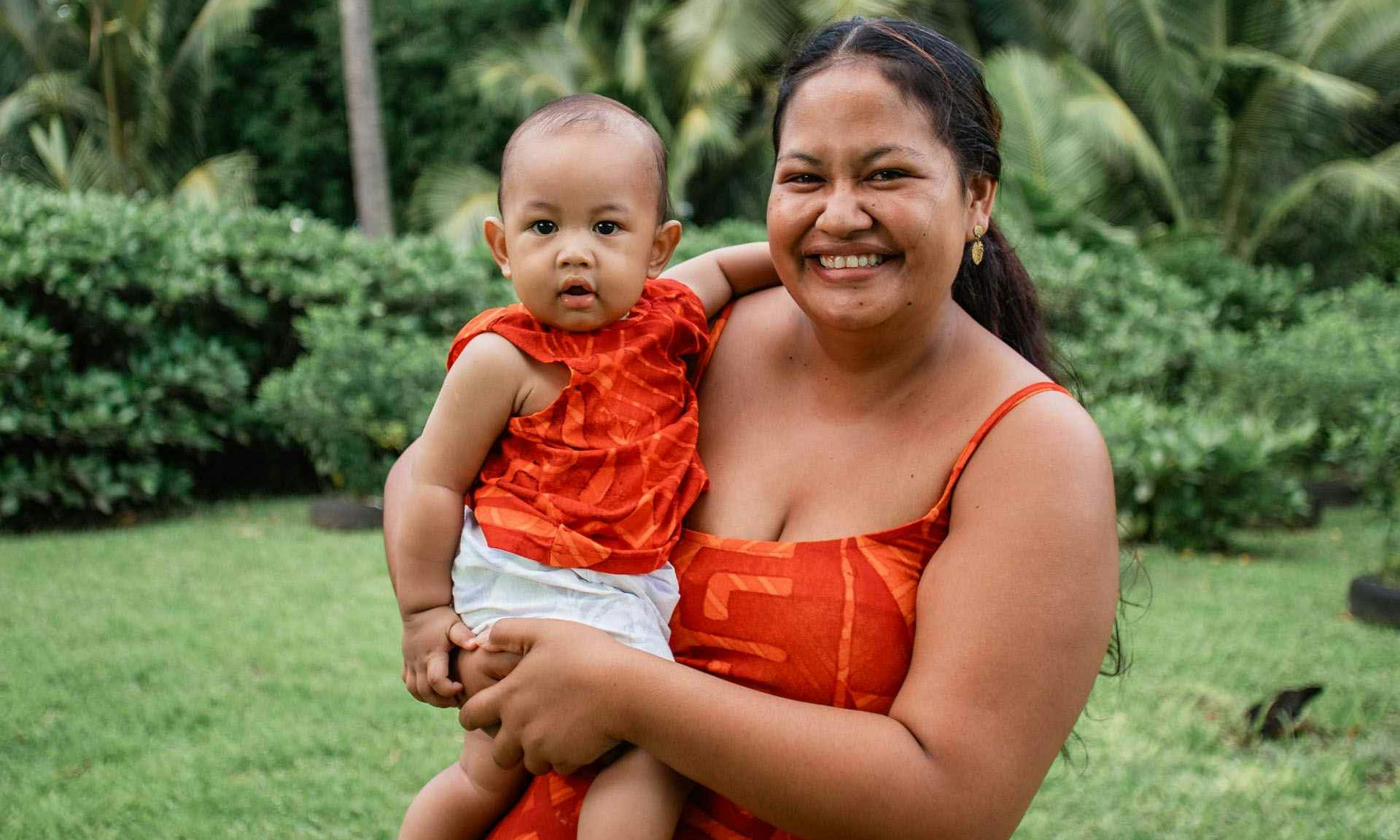
Life-saving vaccines for the Pacific
UNICEF has partnered with Rotary on the ‘Give Every Child a Future’ programme. This means 300,000 vaccine doses will be delivered to children on more than 330 islands over the next three years!
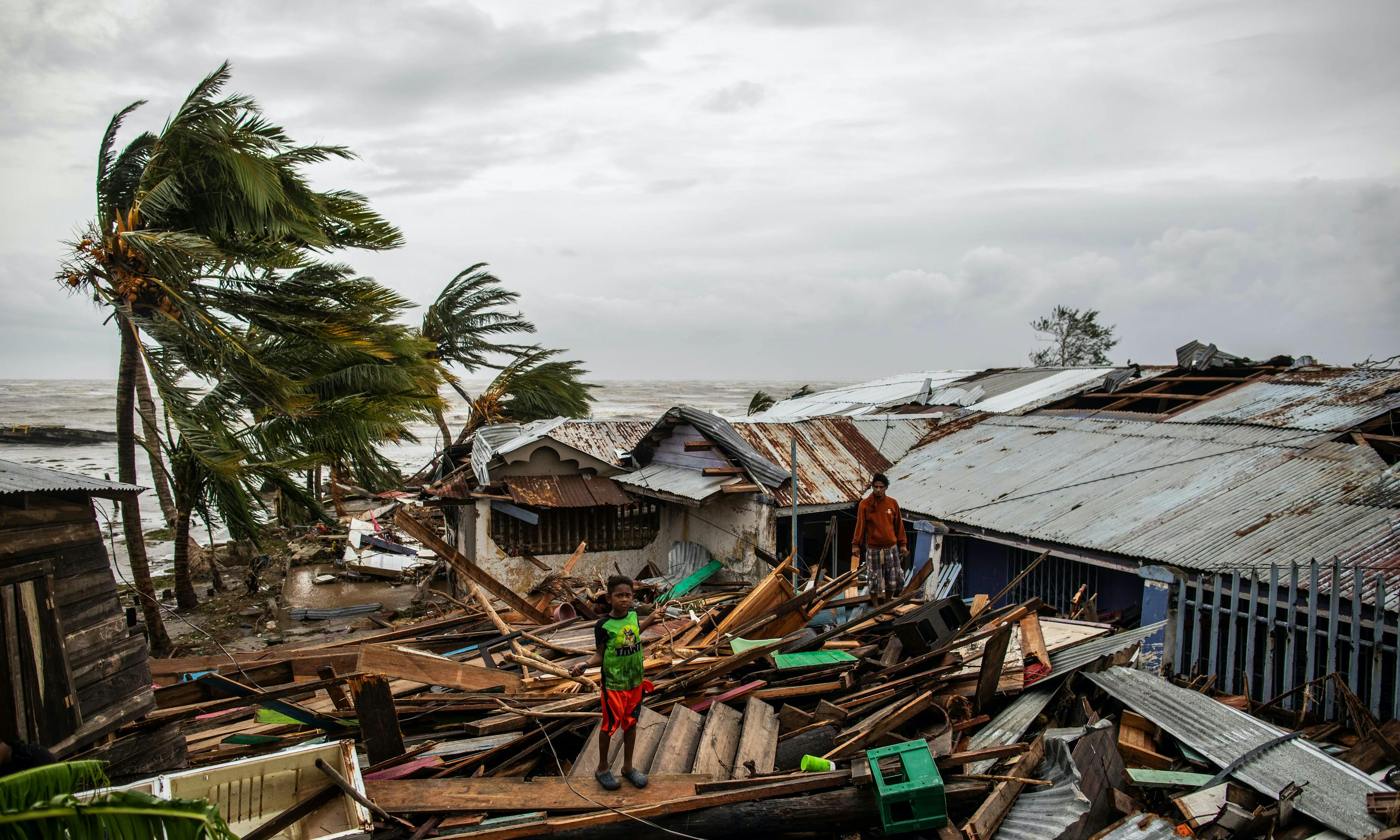
UNICEF calls for investment in world’s first child-focused climate risk financing solution
UNICEF is launching a climate financing initiative to enhance countries’ climate resilience and disaster preparedness for children and bolster protection for kids from the impacts of future climate-related disasters.
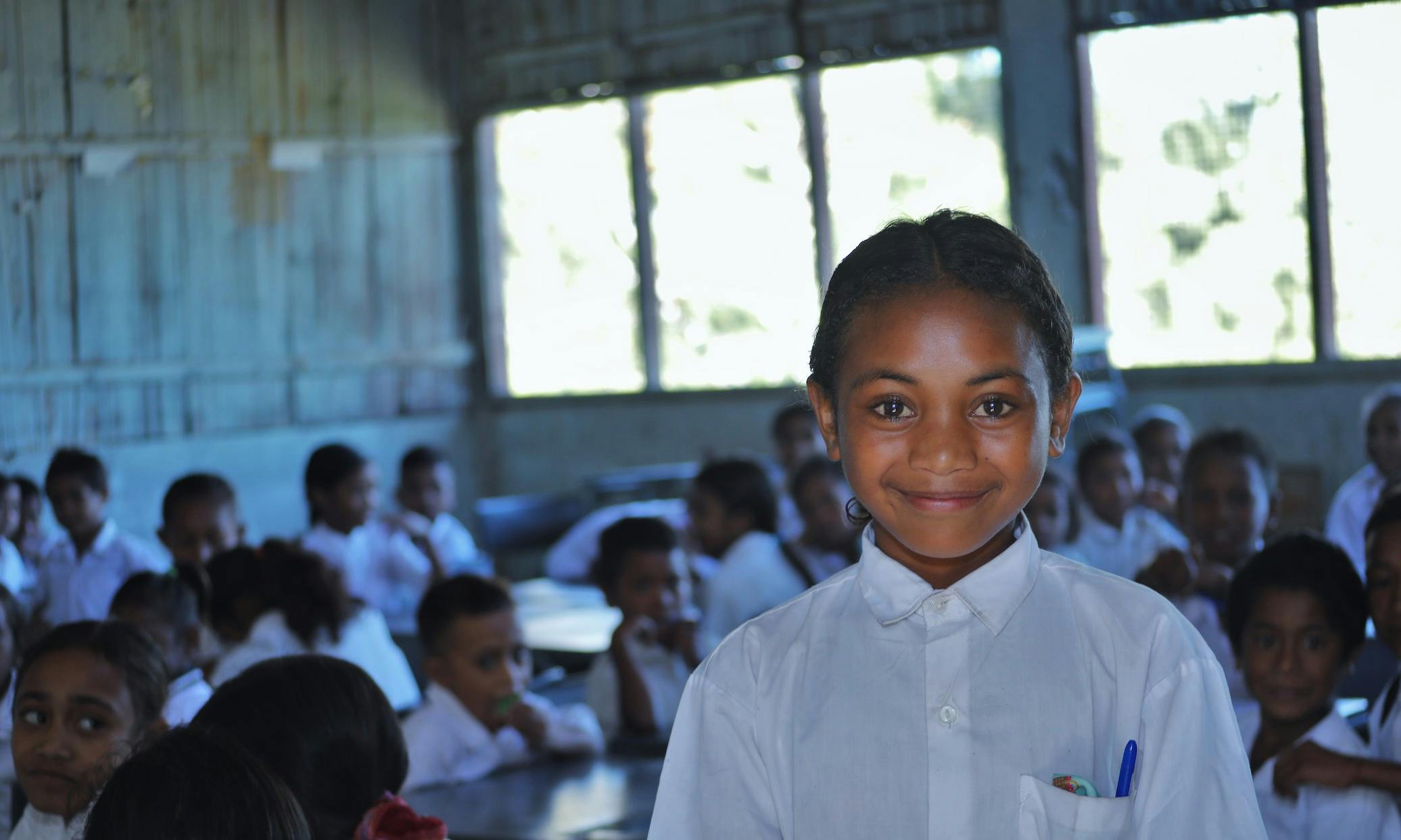
Getting School Ready In Timor-Leste
UNICEF Aotearoa in partnership with MFAT has been working in Timor-Leste since 2008 to improve health, sanitation, and education outcomes. We're strengthening early education to prepare kids for school.
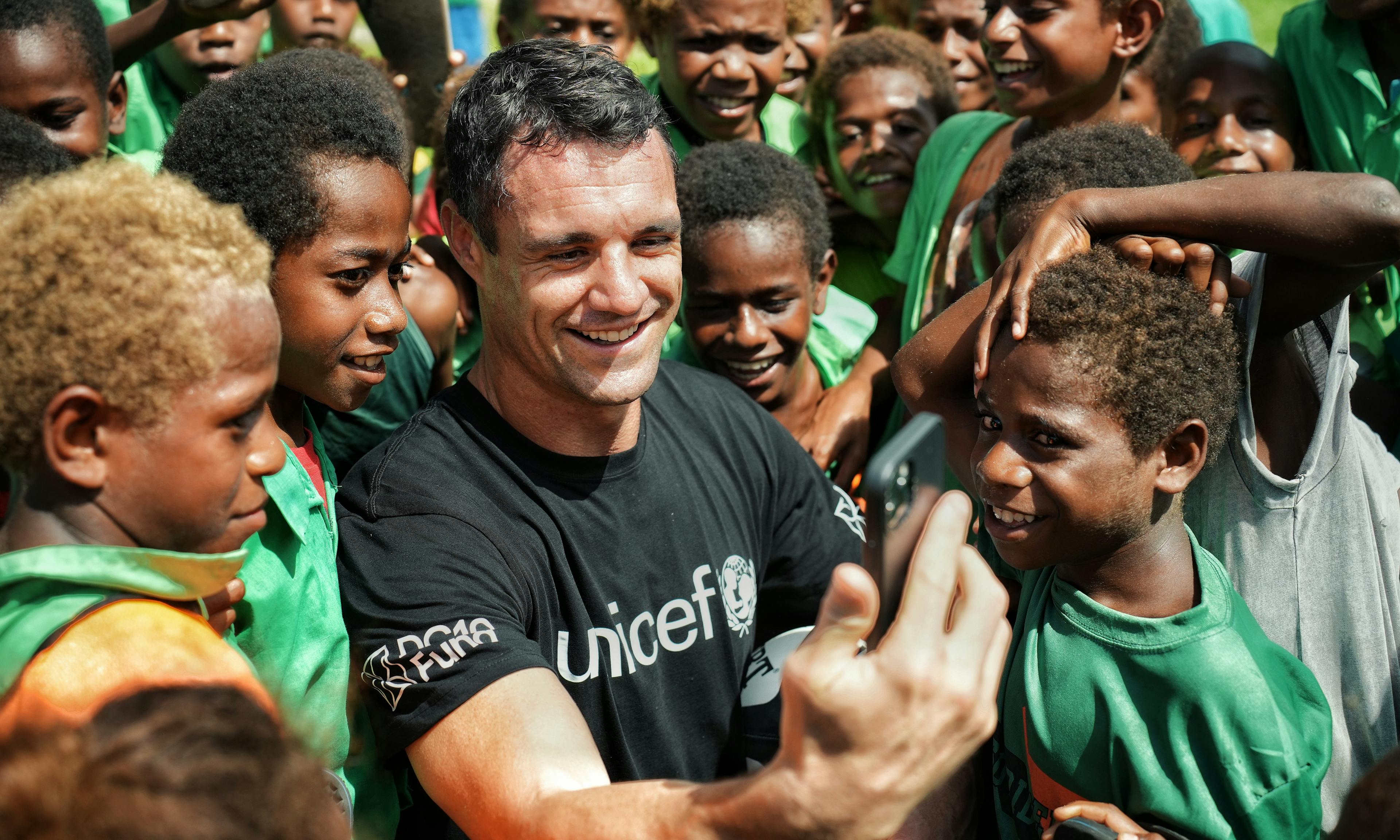
UNICEF Aotearoa Ambassador Dan Carter's trip to Vanuatu
In Pentecost Island, Vanuatu, Carter visited school children where he learnt about the WASH in Schools programme that is improving the water and sanitation facilities and educating students on hygiene practices.